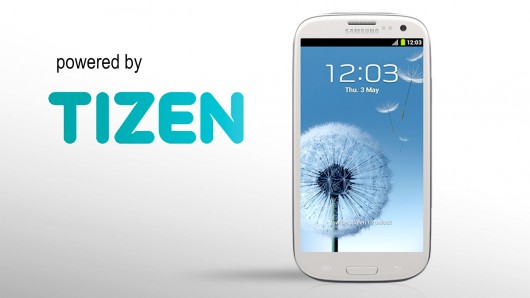Samsung made a stir recently when their new Gear smartwatches were announced with Tizen instead of Android. The same may be true for some smartphones soon.
Tizen is not all that different from Android when you get down to it. It won’t run Android apps or have Google Services baked in (although it technically could), but it could be considered a distant cousin. Both are open source and Linux based. They can even share many similar UI characteristics.
One of the biggest differences with Tizen is the app framework. Tizen is meant to run web apps created in HTML5 or other similar languages. HTML5 apps could technically run most other platforms, but Tizen has the benefit of being able to run these apps outside of a web browser.
The great thing about this native support for web apps is that Tizen won’t have to face the same uphill battle of app support that Windows Phone 8 and BB10 have had to face—a hill Google has only managed to climb in the past couple years. Tizen is very developer friendly and runs any web apps that other phones can run, it just runs them natively.
Like Android, Tizen is very customizable, perhaps even more-so. Tizen has implemented “dynamic boxes” which are basically what we would get if Windows Phone’s Live Tiles and Android’s Widgets were to have a baby. They appear to be an actual part of the operating system, not a separate extremity placed on top.
Tizen is flexible beyond just the UI, too. This is very clear by the fact that Samsung just launched 3 Tizen watches and also has a Smartphone in the pipes. Tizen could run on anything and already spans several different platforms. Considering the collection of companies that participate in Tizen development range from Samsung to Panasonic and Intel, don’t be surprised to see watches, phones, tablets, washers, dryers, microwaves, cameras, ultrabooks and all sorts of other electronic items running Tizen at some point.
Android and iOS aren’t necessarily about to be unseated as the two dominant platforms, but Tizen does raise an important question as to just how relevant a mobile platform is. If your apps work on any phone, then all that really matters is where you store your data. Apple’s iCloud, Google, Microsoft One Drive, etc.
Although we aren’t likely to be liberated from our mobile OS of choice any time soon, Tizen shows a world in which your platform isn’t as relevant than what you do with it.
Source: Engadget, Android Central
Be social! Follow Walyou on Facebook and Twitter
Read more on Walyou, Samsung’s Galaxy Gear May Not Need Android Anymore, Samsung Galaxy S5 is Official and Coming Soon











